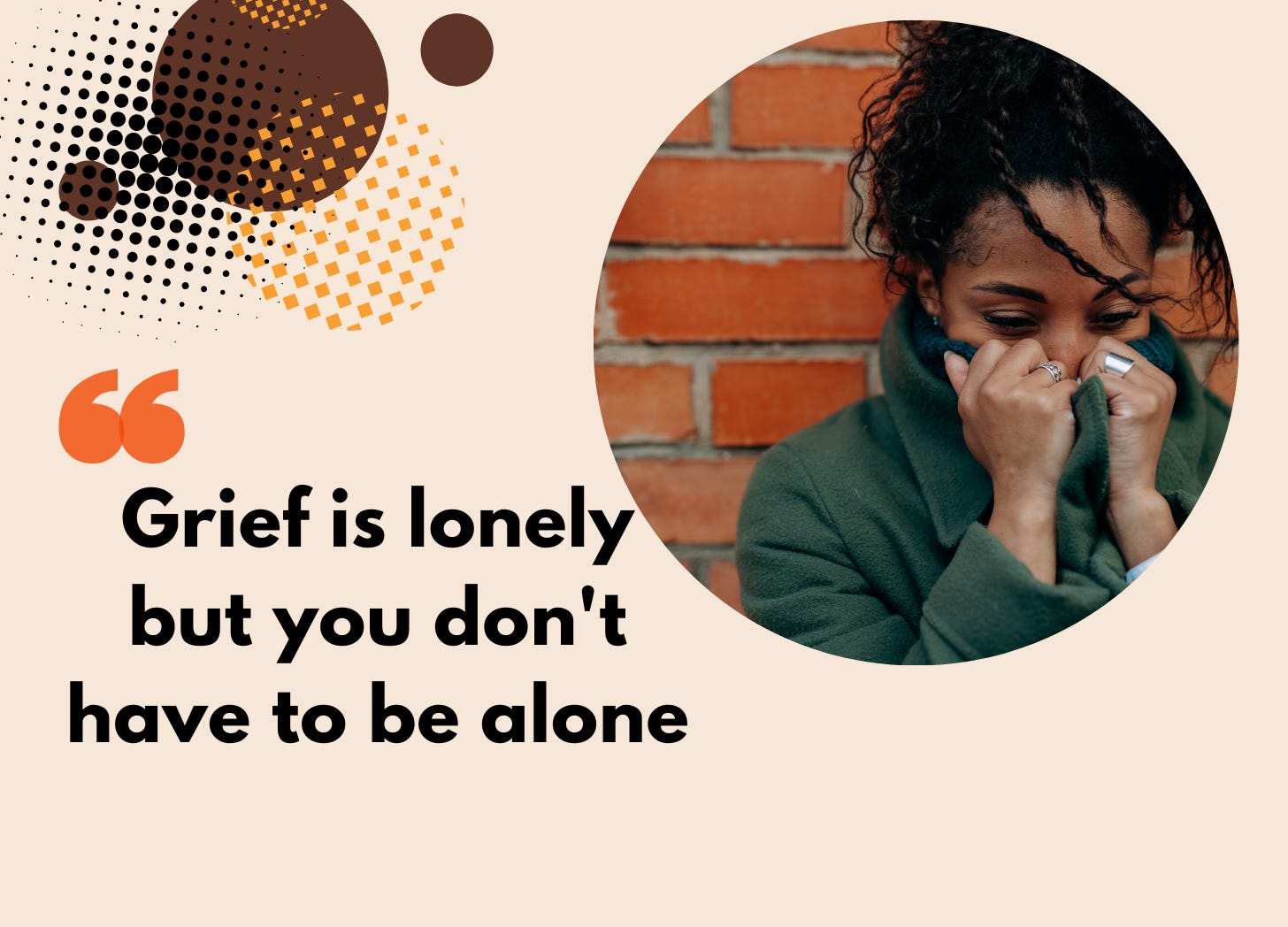Loneliness and Grief:
A Shared, Yet Distinct Journey
Let’s take a few moments to reflect on something many of us have encountered, which is grief and loneliness. While they are not the same, they intersect in powerful and sometimes deceptive ways that can leave us feeling lost. Understanding this relationship can shed light on our experiences and then provide a pathway toward finding more light in what is otherwise a dark experience.
Grief: A Natural Response to Loss
When someone experiences grief it can feel so disorienting that one can often interpret the experience as “there is something wrong with me.” In reality the experience of grief is a very natural response but the situation is entirely uncommon. Grief is the response to any kind of loss or expectation of a loss. We mostly relate grief to the loss of loved ones, but it goes way beyond that. Grief may also be derived from losing a job, a relationship, or even the dreams and opportunities we once held dear. These experiences, though diverse, elicit grief in unique yet universal ways.
We all respond to grief in different ways. Patterns may appear similar, but the intensity is deeply personal. For example, some of us immediately plunge into an overwhelming feeling of emptiness upon losing someone we were deeply connected to. It is here that the lies of grief sneak in. Grief tells us our pain is isolating, that we are too broken for others to bear. It tells us to retreat, to withdraw, and to shield ourselves from connection. And this, my friends, is where loneliness and grief intersect and become a dangerous cocktail.
Loneliness: Grief's Dangerous Companion
Loneliness often feeds on the deceiving whispers of grief. Grief tells us to pull away, to hide our wounds from the world. Yet, this withdrawal only deepens the ache of loneliness. The irony is that while our brains are tricking us into isolating, we are biologically bent toward connection.1 Human survival throughout time has required our ability to connect, communicate, and care for one another. This forces a struggle between our inner wounds and our natural desire to be in community when our grief drives us inward. It is very complicated how our minds work for and against in the same breathe. We are deceived into thinking that by pulling away we can feel more safe, while at the same time by pulling away from authentic community is actually making our situation worse. The loneliness factor compounded on top of grief can be a very dangerous companion.
Stepping Into the Light
Grief doesn't have to keep us in the shadows. I don't like the word "healing" with grief all that much, but I do believe in stepping forward into light. The first step forward may be finding someone you trust such as a friend, counselor, or support group-to talk with. When face-to-face is possible, it's best, but even Telehealth or virtual meetings can bridge a gap. Sharing your story with others who have faced similar losses or a licensed therapist can turn grief from a weight to bear in solitude into an experience processed together.
Grief and loneliness are heavy, but they don't have to define you. It's all about connection. Take the first step toward the light, and remember: you are never truly alone.
So, I dont publish frequently enough to have compensation but I have decided to add this option, Buy Me a Coffee. This is a small way to contribute to some creative projects I have in mind. Feel free to contribute or ignore, you are loved either way :)
Vivek H. Murthy, Together: The Healing Power of Human Connection in a Sometimes Lonely World, (New York, New York: HarperCollins, 2020), Kindle edition chapter 2.
I leave you with the words of Leonard Cohen, “There is a crack in everything, that is how the light gets in.”





